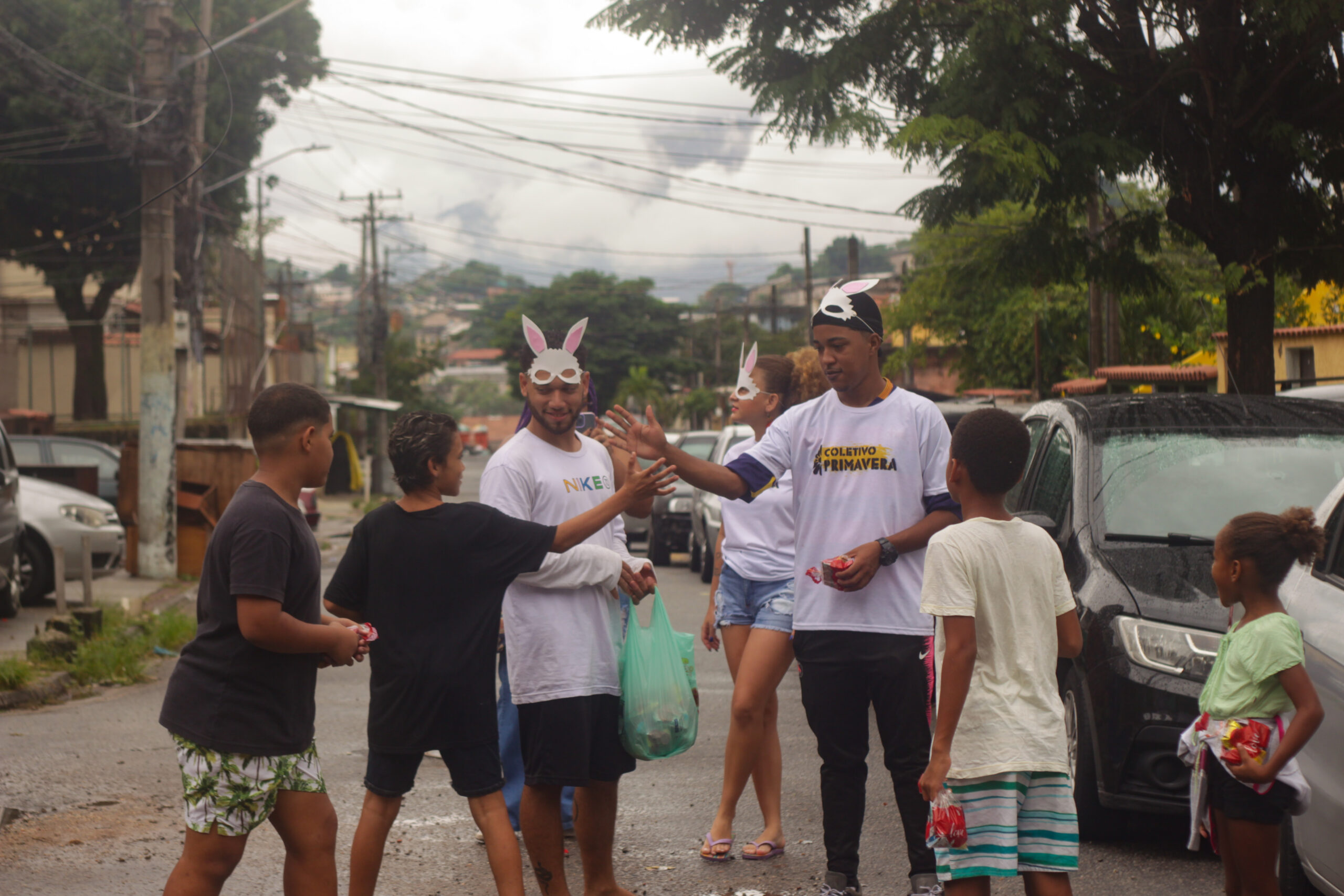
Clique aqui para Português
Rain did not disrupt the Primavera Collective’s Easter activities on April 9. Wearing rabbit masks and calling to children in Morro da Vovó and Rua Tumucumaque in Cavalcanti, a neighborhood in Rio’s North Zone, members of the collective distributed 130 kits and over 90 chocolate bars to 130 children from the neighborhood’s favelas. This was the first Easter activity by the collective, which also carries out activities on Saints Cosmas and Damian Day and at Christmas.
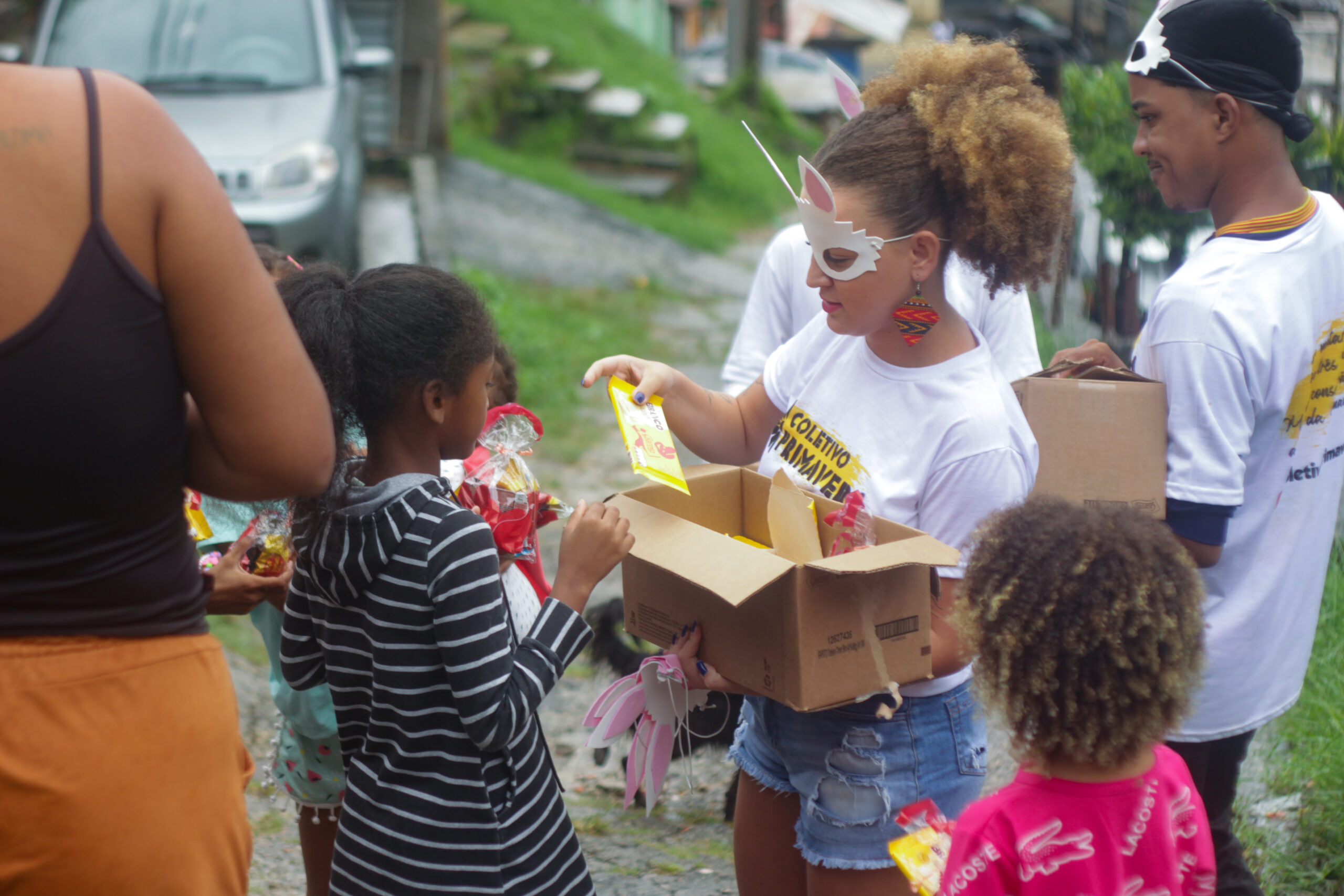
Distribution was made possible through donations from supporters and 90 chocolate bars donated by community media outlet Voz das Comunidades. Launched on March 31, the campaign raised R$900 (US$181) for the activity, the result of solidarity and organization between favela movements. For Suellen Souza, co-founder of Primavera Collective, the collective works and carries out initiatives through a chain of human kindness. She highlights residents’ participation and mobilization of partners through social media.
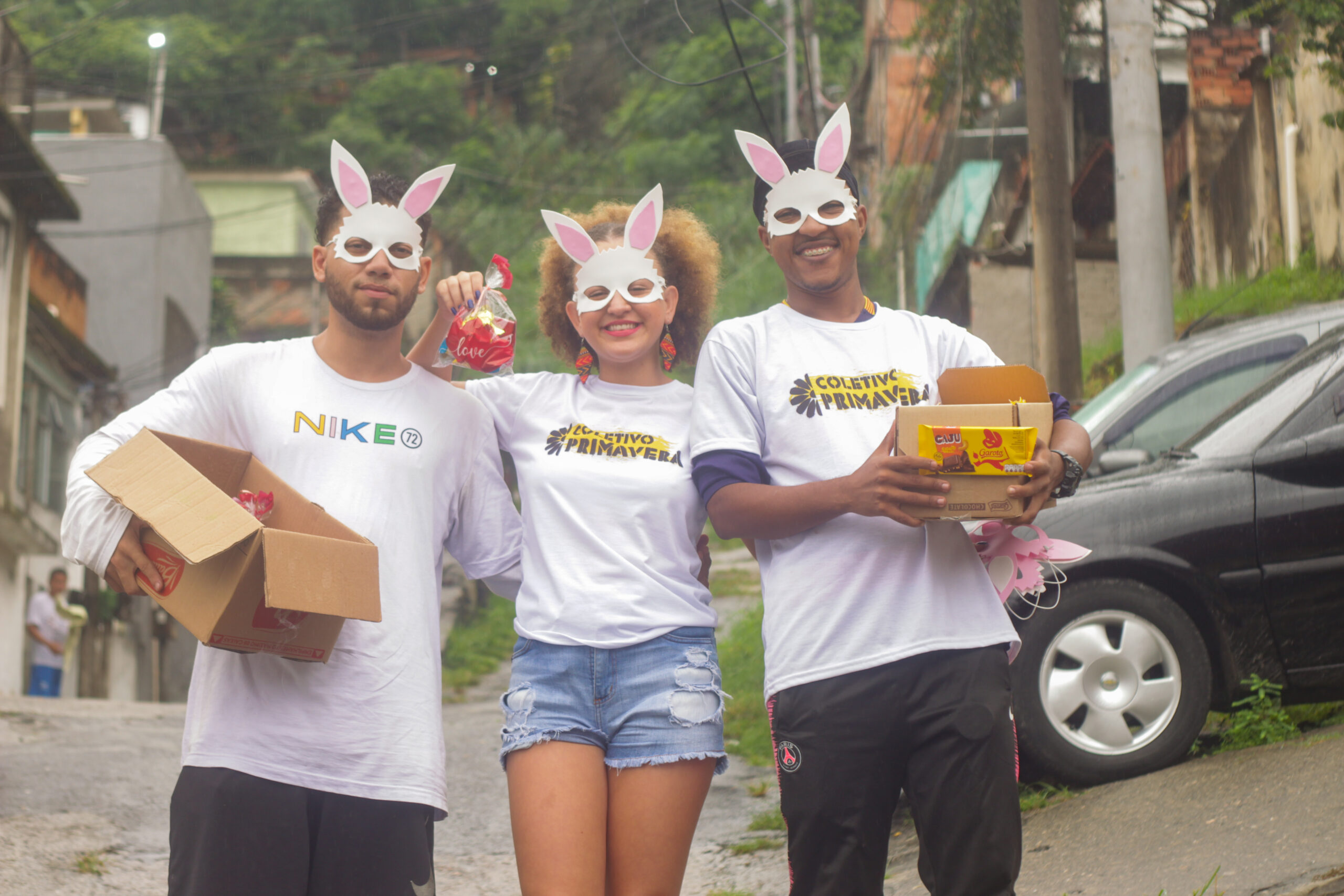
“The collective’s activities don’t just impact our territory, they have an impact outside [the area]. When we carry out a campaign like this, people support it because our work is based on solidarity and that makes people see our work, which is collective, and feel touched by it. At the same time that people donate and help the collective, the collective pulls people into the activity. This works to make collectivity more common in our society, which is very exclusionary, especially with favela residents.” — Suellen Souza
View this post on Instagram
Easter is love, solidarity and collectivity. Ours was exactly that. This video is synonymous with cuteness and it warms our hearts. Thanks to everyone who believes in our hustle. It was only possible because we have you by our side. Let’s keep going!
A Legacy of Solidarity and Collectivity
The Primavera Collective emerged in the context of the coronavirus pandemic and adopts the name of the Primavera favela—one of the favelas where its volunteers take action, located next to Complexo da Serrinha. The collective was founded in the Primavera favela in order to act against pandemic-caused food insecurity, which severely affected the region at the time. After the end of restrictions imposed by the coronavirus, the collective has remained active in the Cavalcanti favelas, leading cultural and education activities, debating issues of gender and race with children through games and art. Projects such as Sementes (Seeds) and A Hora do Cine (Film Time) represent access to art for hundreds of children, in addition to strengthening community pride and local identity. In the collective’s view, food is a basic item, but affection, solidarity, and collectivity are implicit for the children and their families.
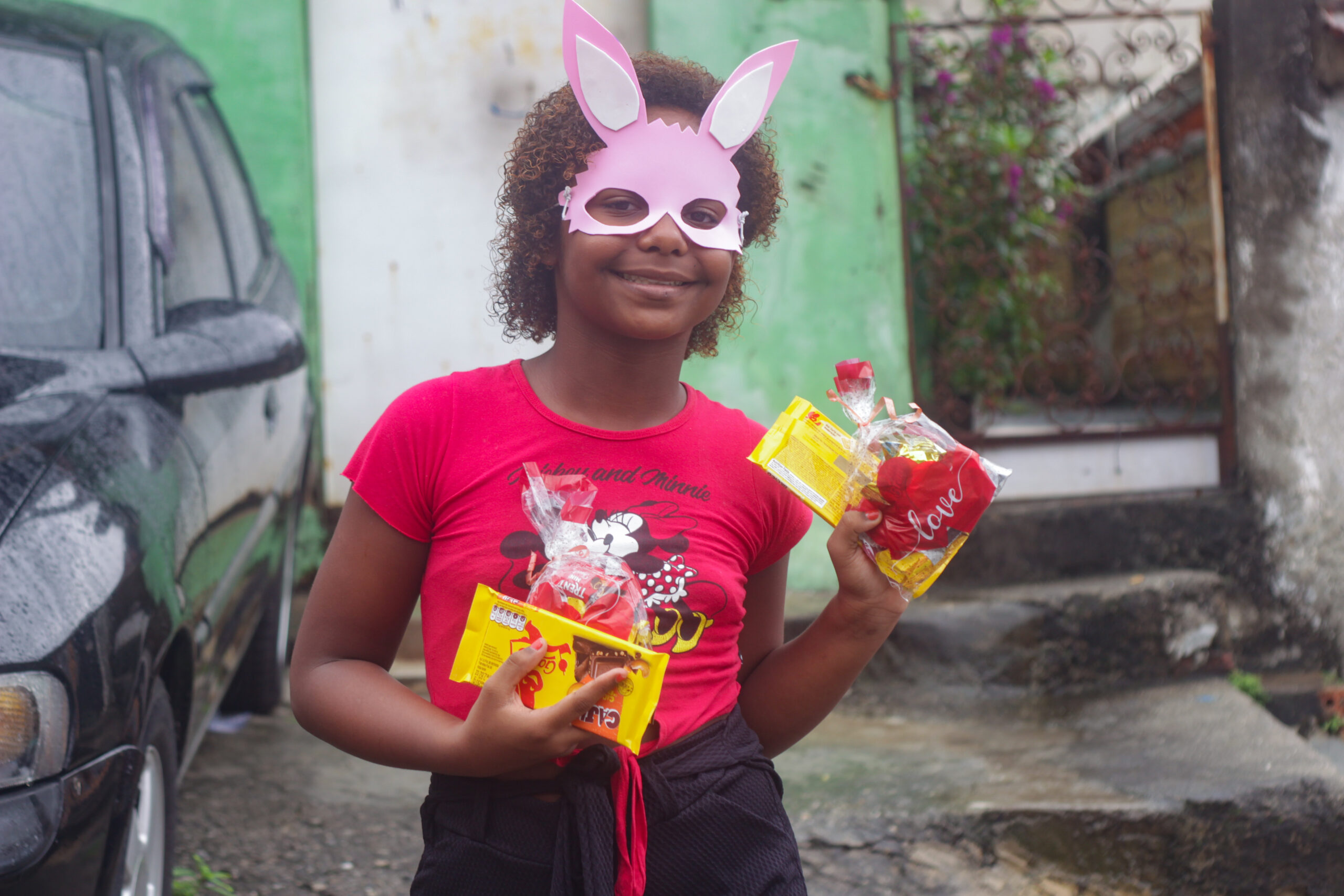
In an area neglected by government, the principle of ‘by us for us‘ prevails. Residents build initiatives that change children’s daily lives. The logistics of understanding where the delivery of chocolates would take place, for example, was developed through dialogue between children and organizers. This strengthens the bond between neighbors who, together, act for each other.
“It was another day for us to strengthen this affection, which is something we are always talking about. In this post-pandemic period, since we spent a lot of time isolated, the children were out of school for a long time and we lost many chances for socialization, integration, being together. We strengthen this affection… through social activities (like the Easter one). It’s a hug, a glance, a handshake, a smile. All of this strengthens our affection and returns it to our territory, because when we have our affections strengthened, we strengthen the place where we live, we strengthen our sense of community.” — Suellen Souza
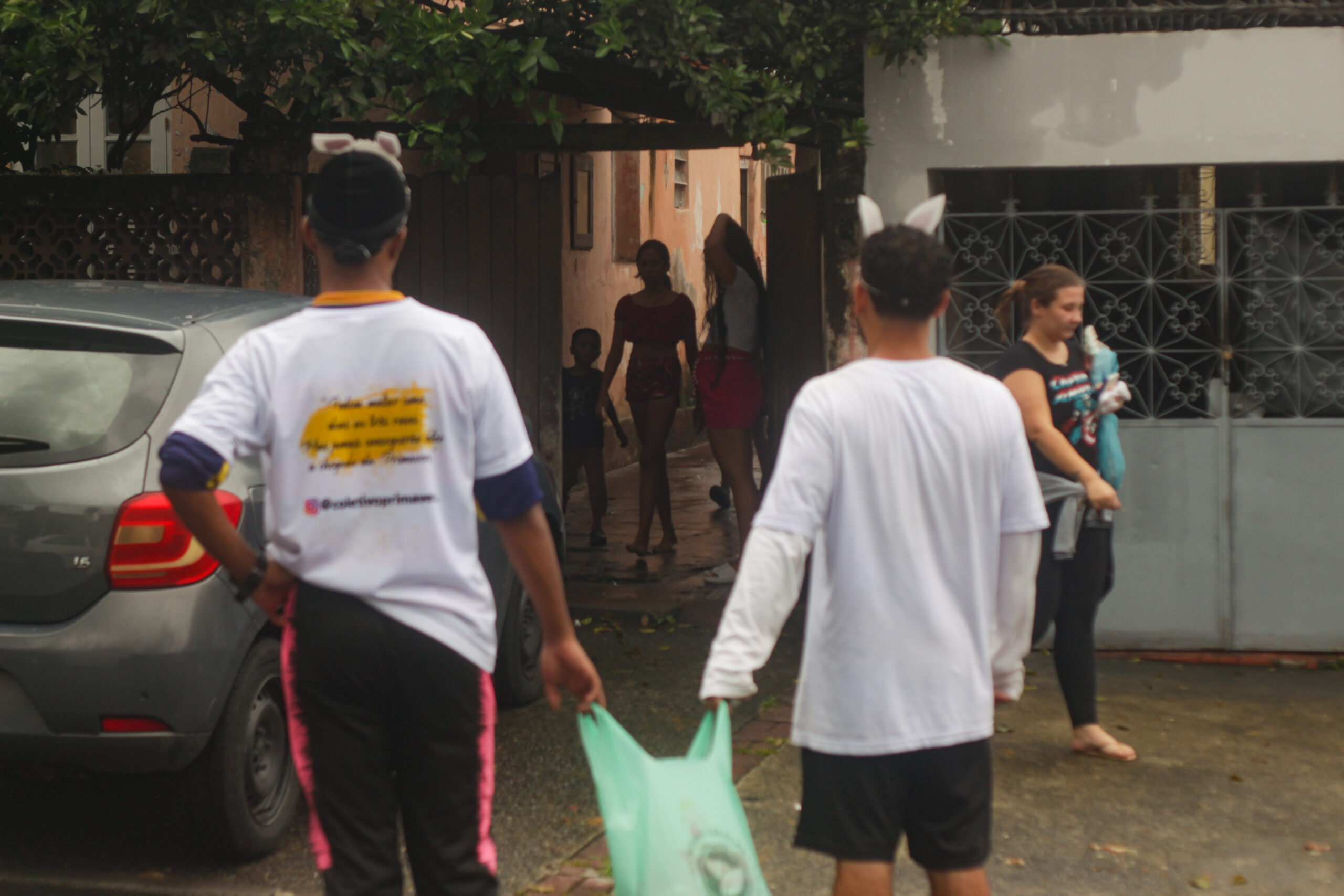
In addition to the religious connotation, Easter is typically a time when people practice solidarity. Donating something, be it money, chocolate, food, and time and energy to an activity where the idea is to help other people, helps to make the territory fairer and encourages even more propositive activities. Daniel Mendes, member of Primavera Collective, comments:
“You could see in [the children’s] smiles, in their expressions, in their eyes, that it was something they were beyond happy about. It’s a simple thing, everybody likes chocolate… I’ve always had that in me, to do good. And this Sunday activity was just that. We did good for our neighborhood. I think each activity is very important, every time we have initiatives like these, they make more room for more events like these to take place, for more people to be able to help, more people to be able to contribute, and for more children to be included. This activity was top for me.”
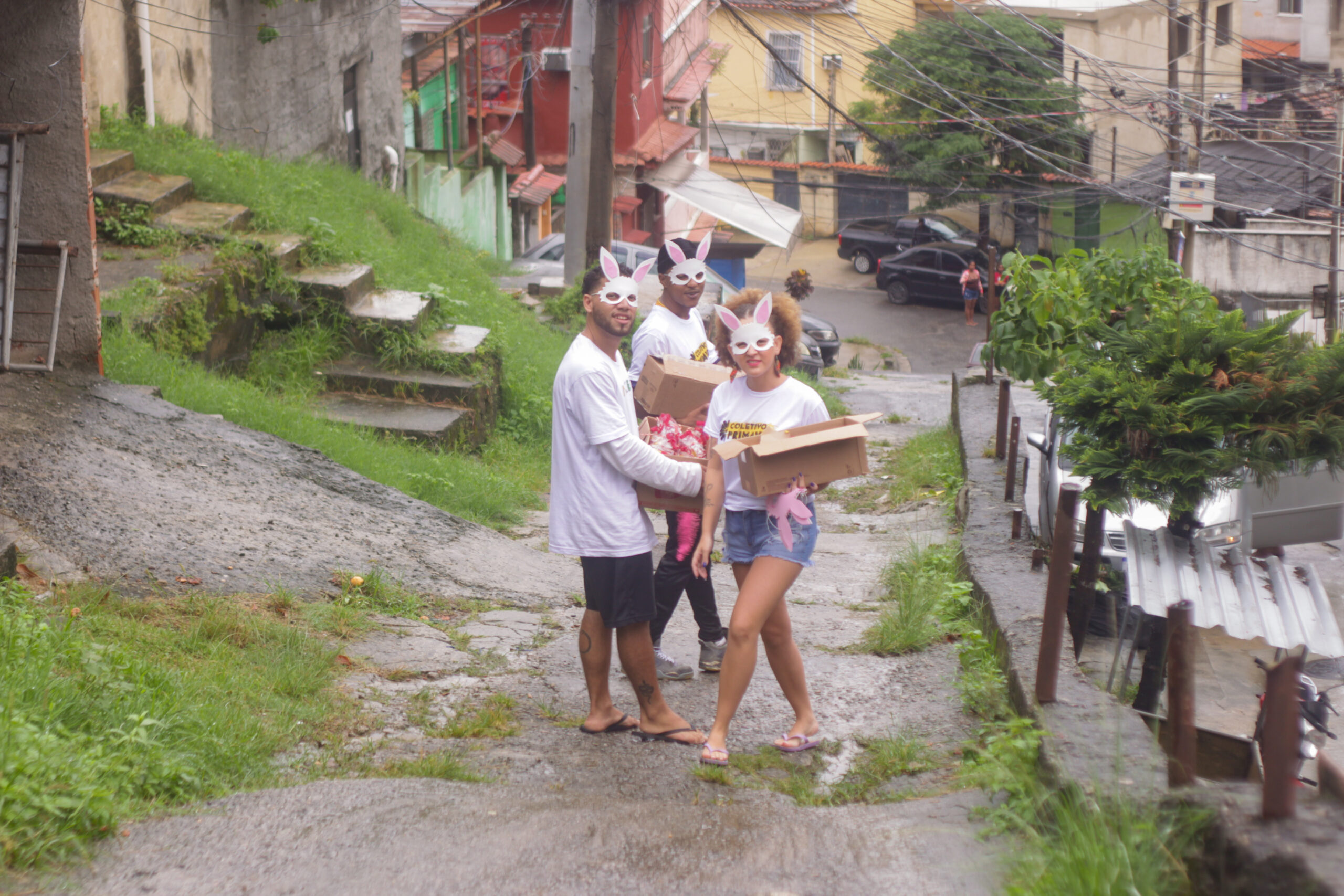
About the author: Vinícius Ribeiro was born and raised in the West Zone of Rio, and currently lives in Mangueira. Journalist, cinematographer and photographer, he is a member of the Fotoguerrilha Collective. He is director and screenwriter of short films Sobreviver, Dame Candole, Sob o Mesmo Teto and Entregadores, and is currently involved with a project about the Uberization and precarization of labor.
